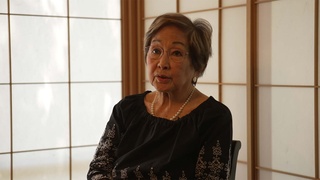Entrevistas
George's Mother & Brad
We exchanged our vows in that wedding, and in my vow, I thanked him for having been not only a wonderful partner in my life, but having been a partner in caring for my mother. Because she got Alzheimer’s. It's a very, very difficult illness. She couldn't take care of herself. And I asked Brad if we can move her in with us. And he agreed. And I was so touched by that.
While she was living with us and we were going through all of the awful, terrible, painful stages of Alzheimer’s, seeing my mother leave us in stages. And those stages sometimes are horrific. The anger stage is followed by the blank stage. When she just sat on the patio, looking out into the garden. And it's heartbreaking.
And then the final hospitalization, and through it all, Brad was there like a son. He was a son. My mother recognized him all the way to the end. My brother, who used to come in for very brief, abbreviated visits, always in a rush. “I got an appointment.” After one appointment, I mean, after one visit, when he left, she said, “Are wa dare?” Who was that? It was heartbreaking. She didn't recognize her own son. But she knew Brad. It is a terrible, terrible disease. And Brad helped me all the way through with it.
Fecha: February 3, 2015
Zona: California, US
Entrevista: John Esaki, Janice Tanaka
País: Watase Media Arts Center, Japanese American National Museum

